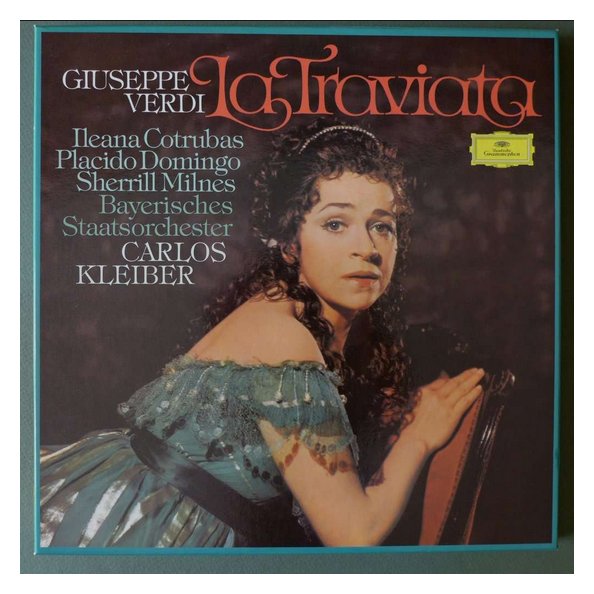

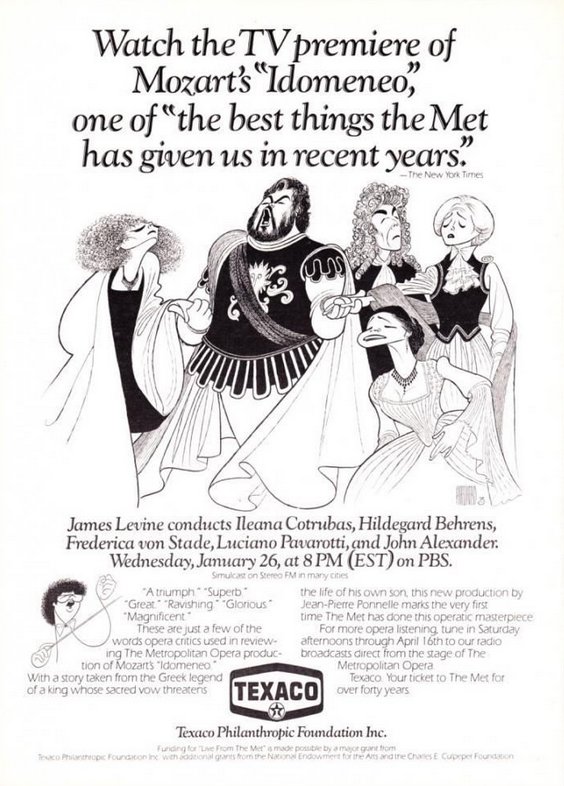 Ileana Cotrubaș: I
think to sing Mozart you have to be born with something
special! It is very difficult,
because we are talking always about style. Mozart, you are
singing in a way and Verdi in another way and Bach also in another
way. It's very difficult because you have a voice
and you have your personality, and the voice will be the same for
Mozart or Verdi or Bach. But you
have to think of the period when all these composers lived. Every
composer was stamped, or touched by his society
when he lived, by the social surroundings, by the literature, by the
painting and everything. It's coming in their own
music and their own personality. How is it so difficult about
Mozart? I think it's very natural. You have to be very
natural and have this purity of sound. But it's the same with
Schubert, for example. You don't have to make anything. You
have to just feel it
inside. I think to be able to
sing Mozart, you have to be born with a kind of musical
sensitivity, which is more special than for Puccini or even Verdi.
Ileana Cotrubaș: I
think to sing Mozart you have to be born with something
special! It is very difficult,
because we are talking always about style. Mozart, you are
singing in a way and Verdi in another way and Bach also in another
way. It's very difficult because you have a voice
and you have your personality, and the voice will be the same for
Mozart or Verdi or Bach. But you
have to think of the period when all these composers lived. Every
composer was stamped, or touched by his society
when he lived, by the social surroundings, by the literature, by the
painting and everything. It's coming in their own
music and their own personality. How is it so difficult about
Mozart? I think it's very natural. You have to be very
natural and have this purity of sound. But it's the same with
Schubert, for example. You don't have to make anything. You
have to just feel it
inside. I think to be able to
sing Mozart, you have to be born with a kind of musical
sensitivity, which is more special than for Puccini or even Verdi. 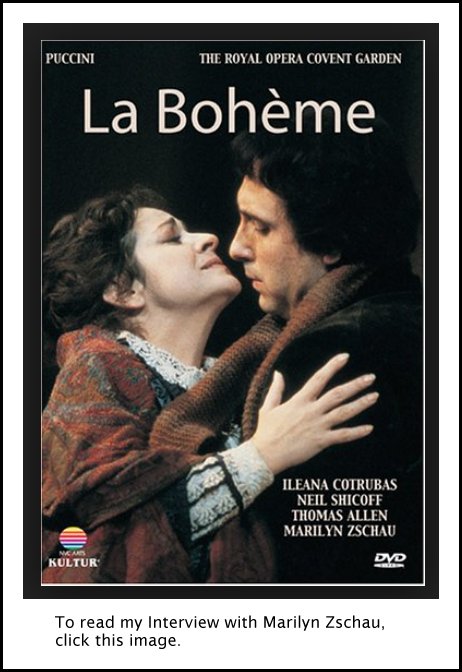 BD: Is she too
noble, perhaps?
BD: Is she too
noble, perhaps?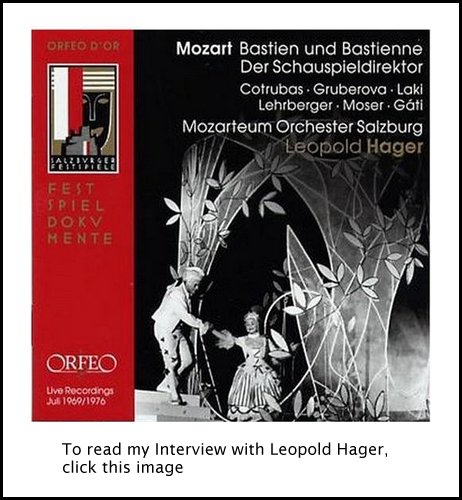 IC: In
different cities they
are. In New York, for example, I have the feeling they understand
more. They will react better and they will help us. I can't
talk about many cities in America because I've only sung in San
Francisco, Chicago, and New York. I
gave a recital at Liberty University [William Jewell
College in Liberty, Missouri on November 10, 1977], and it was also
another
kind of audience because students are more excited and maybe also they
are more prepared. Here in Chicago I'm not talking
about the audience for La Rondine,
because the text is very difficult even for us. The text is very
weak, although I'm against the translation running above the
stage.
IC: In
different cities they
are. In New York, for example, I have the feeling they understand
more. They will react better and they will help us. I can't
talk about many cities in America because I've only sung in San
Francisco, Chicago, and New York. I
gave a recital at Liberty University [William Jewell
College in Liberty, Missouri on November 10, 1977], and it was also
another
kind of audience because students are more excited and maybe also they
are more prepared. Here in Chicago I'm not talking
about the audience for La Rondine,
because the text is very difficult even for us. The text is very
weak, although I'm against the translation running above the
stage. 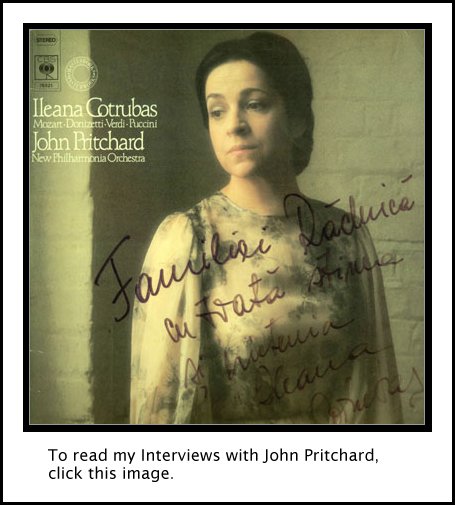 IC: I sang
Manon on the recording, Pêcheurs
de Perles, and Louise
by Charpentier and
that's it. I did on record one other French opera, Béatrice et
Bénédict [the role of Héro. She also
recorded Micaëla in Carmen.]
IC: I sang
Manon on the recording, Pêcheurs
de Perles, and Louise
by Charpentier and
that's it. I did on record one other French opera, Béatrice et
Bénédict [the role of Héro. She also
recorded Micaëla in Carmen.]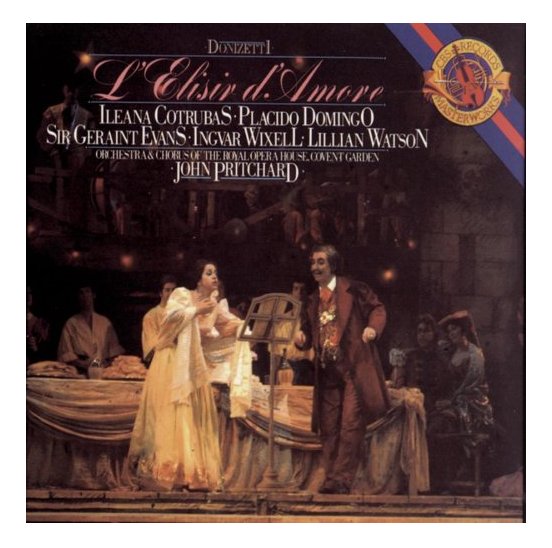 IC: I think
yes. She's touched. It's her love, and she will say in the
end, “How
could I have been so blind? You were with me and had this love
and this care. You were close to me, and I didn't see it. I
was blind not
to see it and not to feel it!” She has
remorse and she's
begging for pardon. But it's beautiful. Not everything has
to have a happy end! [Both laugh]
IC: I think
yes. She's touched. It's her love, and she will say in the
end, “How
could I have been so blind? You were with me and had this love
and this care. You were close to me, and I didn't see it. I
was blind not
to see it and not to feel it!” She has
remorse and she's
begging for pardon. But it's beautiful. Not everything has
to have a happy end! [Both laugh] © 1986 Bruce Duffie
This conversation was recorded in Chicago on January 7,
1986. Portions were broadcast on WNIB later that year,
and again in 1987, 1989, 1994 and 1999.
A brief portion was used on the Lyric Opera of Chicasgo Website as
tribute to their Jubilarians during the Gala 50th Anniversary
Season. This transcription was made in 2014, and posted on this
website in 2015.
To see a full list (with links) of interviews which have been transcribed and posted on this website, click here.
Award - winning broadcaster Bruce Duffie was with WNIB, Classical 97 in Chicago from 1975 until its final moment as a classical station in February of 2001. His interviews have also appeared in various magazines and journals since 1980, and he now continues his broadcast series on WNUR-FM, as well as on Contemporary Classical Internet Radio.
You are invited to visit his website for more information about his work, including selected transcripts of other interviews, plus a full list of his guests. He would also like to call your attention to the photos and information about his grandfather, who was a pioneer in the automotive field more than a century ago. You may also send him E-Mail with comments, questions and suggestions.